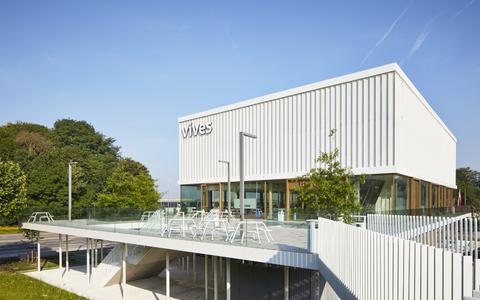Programme accreditation customised to own conduct
Universities and university colleges are themselves responsible for ensuring the quality of their programmes. However, before a university or university college may conduct such assurance, a programme that has been recognised as new must attain programme accreditation. This is the official conclusion by NVAO that the programme meets the minimum requirements regarding quality and level.
Do you represent a recognised institution other than a university or university college? Then you need to follow another procedure.
General info
Programme accreditation is the official conclusion by NVAO that a programme meets the pre-determined minimum requirements regarding quality and level as set out in the assessment framework. NVAO bases its accreditation decision on an assessment of the programme quality by a panel of independent experts.
The quality of a programme is demonstrated on the basis of eight quality features. In addition, the assessment panel verifies how the programme is involving, on the one hand, internal and external stakeholders, and on the other, external and independent peers and experts.
If applicable, the panel verifies whether the programme meets the regulations with respect to the admission of graduates to corresponding offices or professions.
The assessment procedure is coordinated by NVAO and tailored to the control that the institution has elaborated regarding the quality assurance of its programmes. When drawing up its self-evaluation report, an institution may use the results and outcomes of the control it exerts. The site visit is structured in consultation with the institution: the duration, the substantiation of the schedule, and the specific discussion topics may vary depending on what the programme brings up in its self-evaluation report.
The assessment is followed by the accreditation procedure, which is also coordinated by NVAO. Once the assessment report by the panel has been endorsed, NVAO will take an accreditation decision (positive – limited validity – negative). A positive accreditation decision entitles the institution to henceforth itself vouch for the assurance of its programme quality.
Steps
SELF-EVALUATION REPORT
APPLICATION
No later than eight months before expiry of the current accreditation or recognition as a new programmeVERIFICATION OF ADMISSIBILITY OF THE APPLICATION
Notification regarding admissibility no later than 15 calendar days after receipt of the applicationCOMPOSITION OF THE ASSESSMENT PANEL
SITE VISIT
ASSESSMENT AND ASSESSMENT REPORT
DECISION BY NVAO
6 months after receipt of the applicationRates
Once the application has been found admissible, the institution will receive a request for full payment of the cost price of the programme accreditation. The fee applicable to this procedure is fixed by the Education Minister of Flanders. It covers the costs entailed in the work performed by the panel members (remuneration, travel expenses, hotel accommodation, et cetera), which are paid by NVAO.
The rate for programme accreditation customised to own conduct is EUR 12.237.
Request submission
The application is submitted via the digital application form; it comprises an application letter signed by the board of the institution and the Self-evaluation Report.
Files
Contact person

